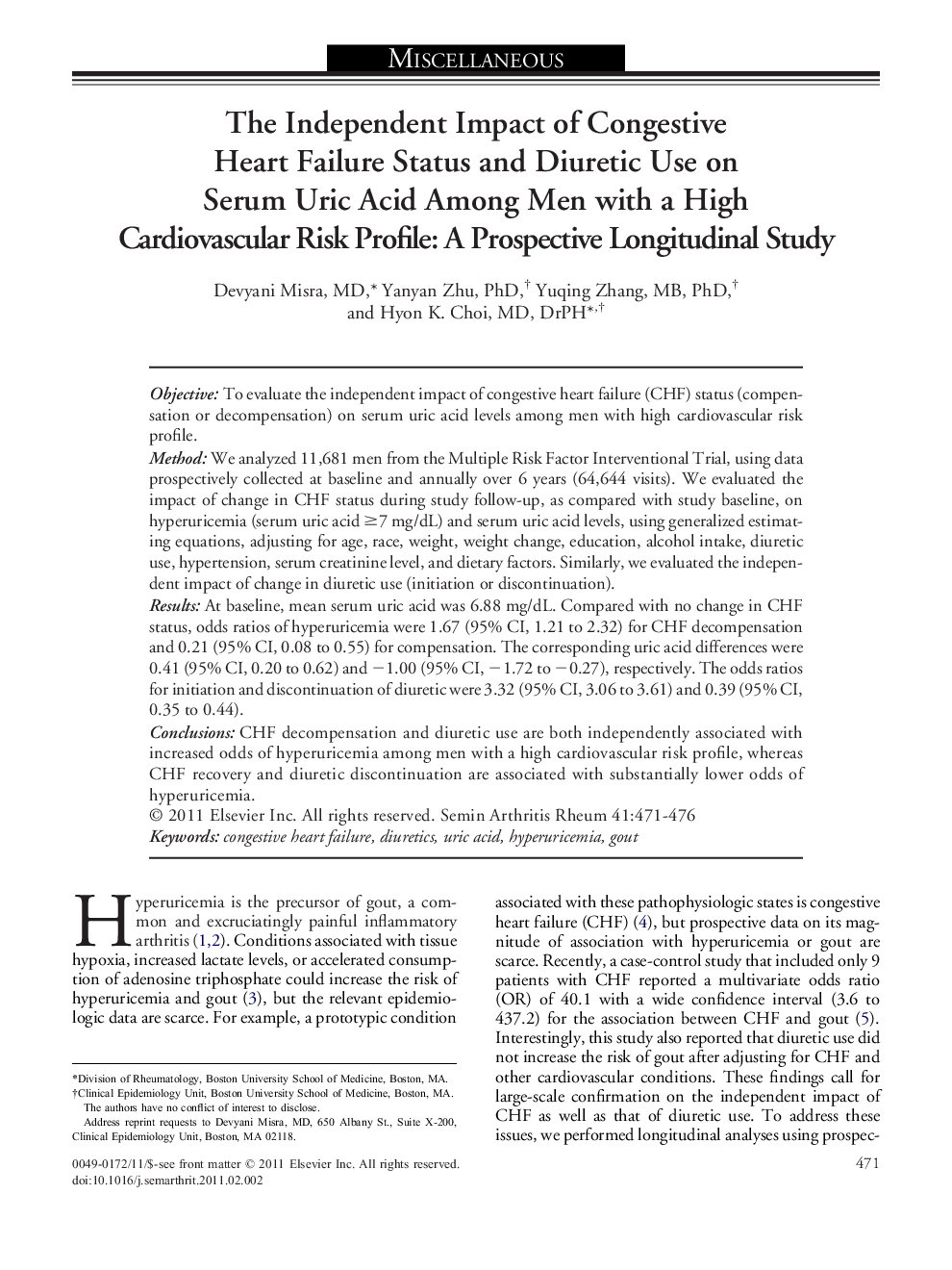| Article ID | Journal | Published Year | Pages | File Type |
|---|---|---|---|---|
| 2771415 | Seminars in Arthritis and Rheumatism | 2011 | 6 Pages |
ObjectiveTo evaluate the independent impact of congestive heart failure (CHF) status (compensation or decompensation) on serum uric acid levels among men with high cardiovascular risk profile.MethodWe analyzed 11,681 men from the Multiple Risk Factor Interventional Trial, using data prospectively collected at baseline and annually over 6 years (64,644 visits). We evaluated the impact of change in CHF status during study follow-up, as compared with study baseline, on hyperuricemia (serum uric acid ≥7 mg/dL) and serum uric acid levels, using generalized estimating equations, adjusting for age, race, weight, weight change, education, alcohol intake, diuretic use, hypertension, serum creatinine level, and dietary factors. Similarly, we evaluated the independent impact of change in diuretic use (initiation or discontinuation).ResultsAt baseline, mean serum uric acid was 6.88 mg/dL. Compared with no change in CHF status, odds ratios of hyperuricemia were 1.67 (95% CI, 1.21 to 2.32) for CHF decompensation and 0.21 (95% CI, 0.08 to 0.55) for compensation. The corresponding uric acid differences were 0.41 (95% CI, 0.20 to 0.62) and −1.00 (95% CI, −1.72 to −0.27), respectively. The odds ratios for initiation and discontinuation of diuretic were 3.32 (95% CI, 3.06 to 3.61) and 0.39 (95% CI, 0.35 to 0.44).ConclusionsCHF decompensation and diuretic use are both independently associated with increased odds of hyperuricemia among men with a high cardiovascular risk profile, whereas CHF recovery and diuretic discontinuation are associated with substantially lower odds of hyperuricemia.
